55- 02/11/2022 The 7th annual meeting of whistleblowers will be held at the Maison des Sciences de l’Homme Paris Nord on November 11, 12 and 13, 2022[1]. On this occasion, Selfpower-community paints the portrait of these 21st century knights. What ideal inspires them? How do they experience their fight? Do they succeed in bringing people together round the same cause ?
The common traits of whistleblowers
Critical awareness, sense of righteous anger, self-determination, fighting spirit, perseverance… whistleblowers tick all empowerment features. Witnessing a serious dysfunction that undermines humanistic values or Republic principles, the whistleblower does not look away, does not linger to weigh up benefits/risks following his divulgation. In his heart, he feels he “cannot not denounce”; knowing and not saying, comes down to be an accomplice. No way! So he takes charge of what will become “THE SCANDAL” of the day, of the month, of the year or of the century.
This conscience that gets its dissonant voice heard is Karim Ben Ali‘s, a temporary driver, who filmed himself pouring acid and denounced the pollution of the soil by ArcelorMittal, on July 3, 2017[2].
It is Hella Kherief‘s, a caregiver who, as early as 2016, recounts the abuse in retirement homes in a video, 5 years before the publication of the book “The gravediggers”[3].
It is Irène Frachon‘s, a pneumologist, investigates cases of valvulopathy and demonstrates the Mediator toxicity in a book that will be a milestone (2010)[4].

It is Julian Assange‘s, journalist and founder of the WikiLeaks. Fighting against the information asymmetry[5] between public authorities and citizens, he disclosed hundreds of thousands of documents, in 2006. On his website, Bradley Manning, now Chelsea Manning, reported classified military documents related to national defense, notably on the death of civilians during the war in Afghanistan and visual evidence of U.S. Army abuses during the war in Iraq. She explains her fight for more institutional transparency and her rights as a trans woman in her recently published book Readme.txt (2022).
It is Antoine Deltour‘s, auditor in a Luxembourg tax consulting firm who finds unfair austerity plans endured by taxpayers while multinationals escape taxation. In 2020, he revealed the Luxembourg tax ruling system, which allows multinationals to avoid paying taxes. By transmitting thousands of pages to the media, he is at the origin of the Luxleaks affair, precursor of the Panamapapers.
Finally, these are the ones who reveal the danger of agricultural products, underestimated risks of certain drugs, deficient controls in slaughterhouses or in breeding… who protest against industrial and agricultural pollutions, against the environmental impact of fossil fuels, against poverty, migration policies, mass surveillance…
The whistleblower: an “empowered” citizen… but very alone
Why whistleblowers are the only ones to report failures and dysfunctions, already known by some citizens, by their colleagues or by their hierarchy? For the same reason that when someone is attacked, a passer-by will help, another will call for help and a third will pass by. It’s a question of priority, of emotion, of sensitivity, of conviction… of sense of societal responsibility.
But shouting indignation is not enough… The whistleblower thinks abuses will be stopped by making the information accessible to all. Big mistake! “One thing for sure, few whistleblowers suspect the chain reactions (and even less the lack of reaction), none of them imagine the violent backlash, nor the pitfalls they’ll encounter. Their revelation brings an end to their tranquility, and for some, to their “employability”. If they thought that pointing out a scandal would help to solve it; they may fall from grace” warns Daniel Ibanez, co-founder of the meetings, whistleblower[6] himself and co-founder of the 7th whistleblower meetings.
In fact, whistleblowers live a true descent into hell, face courts, some even go through unemployment, separation, burn-out, loss of bearings… 12 years later, some find themselves alone, less combative, more cynical.
What happened in the meantime ? The mechanism is interesting for what it reveals about the media reductive role, the ease with which associations delegate their missions to whistleblowers’ frail shoulders, and the public guilty inertia.
Reluctant heroes
The press magnifies their courage and their commitment. But the costume is too big! Their fight defines them and to the public, they become one with their cause; a double-edged reduction. Certainly, this identification shows a real recognition of the uniqueness of their message. But at the same time, the press and general opinion delegate them the fight. The “We support you” has a watermark of “we’re offloading the problem because you take care of it“. But the speaker did not receive any media training, did not attend communications course in college to refine his messages. He did not study law to analyze the situation in all its legal implications. Nor is he an expert on the issue being raised… Without solid support, he is quickly overwhelmed and loses his grip. The super-citizen becomes a sacrificed hero by an information system for which the scandal is reduced to an ephemeral polemic, good for consumption as long as it sells. But the media quickly get tired of it: “we have already talked about it” or “this subject has been dealt with by others and we want exclusivity“, they hear the editorial staff answer. “In a system in crisis, it is common for alerts to simply feed a succession of cases that keep overlapping each other, like industrial disasters or financial scandals,” notes Daniel Ibanez[7].
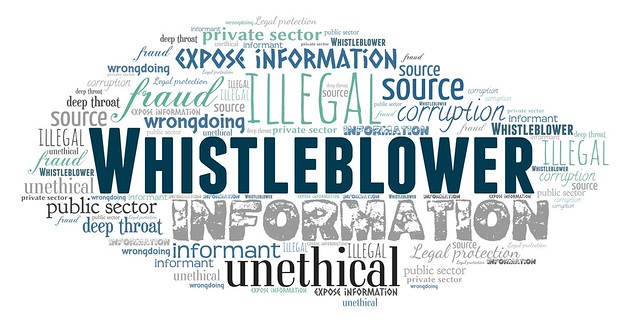
©EpicTop10.com on VisualHunt
A David vs. Goliath power struggle is established. To hold on, the whistleblower must be very factual. Especially when the opposing party does not hesitate to present itself as a victim, and initiates its own legal proceedings, its own communication actions and uses its political support, by investing considerable sums. “As greenwashing, the opposing party has to limit the alert,” decrypt Francis Chateauraynaud and Daniel Ibanez. It often happens that the whistleblower is prosecuted in court – the accuser becomes the accused. They must learn quickly, get out of their emotion and increase their skills in organization, in mastering press relations, in legal and technical knowledge.
On the associative side
Whistleblowers can deplore a lack of commitment on the part of organizations supposed to defend the same causes. Once the excitement passed, it is necessary to be able to organize a resistance, an opposition, for months or even years. But holding out over the long term of justice, the media, and political deadlines, supposes the creation of coordinations and collaborations that exceed the capacities of an isolated individual and his lawyers. It is necessary to create a core of close associates, attached to the same principles, who share knowledge and experience, who study together new paths, projects and partnerships. A dynamic structural framework will allow individual action to become a collective movement. And only a motivated group can implement a strategy of empowerment on a larger scale : found an active community, organize mobilization, build advocacy, address root causes, propose socio-political transformation and devise palliative solutions… In concrete terms, it is up to the members to come up with answers when the authorities do not provide any, such as an online petition, the creation of a website, the constitution of a support committee in order to collect donations and finance the defense. This core group is often made up of relatives and a few activists who will solicit personalities and influencers…
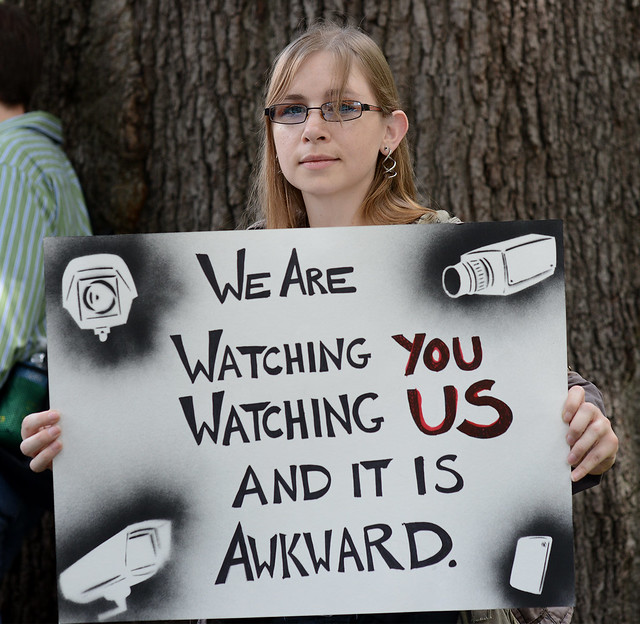
“But the relay is difficult to transmit. Supporters do not necessarily become actors and carriers of the alert, existing organizations are not ready to take up the case on their own, allocate means, plan a resistance to counter inaction or retaliatory measures, also in the face of the deafness of public authorities, the deficiency of State services or even of the judicial institution.” notes Daniel Ibanez.
So, unable to count on those who are supposed to help, the whistleblower who accepts to sacrifice his comfort of life becomes the “alert carrier”; he invests his time and his personal means to, in fine, find himself very often alone, in the face of reprisals.
Why alert doesn’t spontaneously generate a collective response from citizens?
Because alert is treated as information, it reduces its destabilizing impact. “In my opinion, we only take into account the media side of the alert, not its essence or its fundamental aspect. We don’t go to the end of the problem, we don’t want to see what such deviance – often instituted as a system – says about our society, about the connivance with the financial and political power and about the established balance of power. So we react badly“, analyses Daniel Ibanez. Actions remain isolated and public mobilization limited.
The resumption or the absence of resumption at the citizen level is the result of the same motivation that makes the employee or the witness a whistleblower: it is an individual decision. It is partly the result of education, personality and environment that shape the consciencen the conviction of each person. It is indeed easier to denounce abuses and frauds in a virtuous ethical context than in an environment where civic requirements are low[8]. Hence the need, in an advanced democracy, to remind people of the law and its principles. One approach would be to teach the founding legal texts of democracy and ethical principles in primary and secondary schools and, based on these texts, to define the rules of school life.
This education also includes the promotion of virtuous civic behavior, the awakening of critical awareness, vigilance with regard to conflicts of interest, and the ability to form an independent opinion and to debate it.
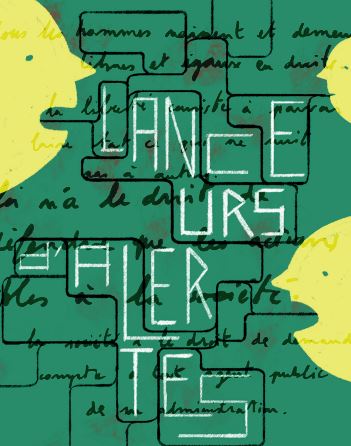
In this spirit, it is also useful to recall the existence and the role of independent evaluation agencies and to open them to an effective citizen participation.
Finally, today in Europe, in France there is a legislation that protects whistleblowers and structures exist that can advise and support them
The whistleblower is now less alone
Today, in France, whistleblowers can count on online media that are more independent from any economic or political power.
They also have the possibility to meet with their peers and supporters during the annual whistleblowers’ meetings which create a space for sharing and solidarity around their commitment.
They can also benefit from the expertise of the whistleblowers’ house, which provides a range of concrete services to whistleblowers, accompanies them and guides them.
Whistleblowers’ House
38 rue Saint-Sabin, 75011 Paris
https://mlalerte.orghttps://mlalerte.org/
Whistleblower: french definition and law
A whistleblower is someone who reports an illegal action, immoral practices or reprehensible acts – without financial consideration.
What does the law say ? A whistleblower reports or discloses, without direct financial compensation and in good faith, information concerning a crime, an offence, a threat or harm to the general interest, a violation or an attempt to hide or conceal a violation of international or European Union law, the law or regulations.
The facts denounced may concern “information” on a crime, misdemeanor or violations of law, but also “attempts to conceal” these violations. The violation of rule will no longer have to be “serious and manifest”.
As for the protections offered to whistleblowers, in particular the protection against retaliation, they concern not only natural persons but also non-profit legal persons (unions and associations) who are in connection with the whistleblower: facilitators who help to report, colleagues, relatives…
To be underlined: “The whistleblower cannot be held civilly liable for the prejudices caused by his good faith reporting, nor criminally liable for having intercepted and taken away confidential documents related to his whistleblowing, containing information to which he had access in a lawful way. For example, an employee who is shown a report proving that a factory is dumping mercury into a river, would have the right to take it to prove the facts of which he had lawful knowledge.
Whistleblowers will be able to benefit from psychological and financial support measures by external authorities, whether they have been seized directly or via the Defender of Rights.
Texts taken from vie publique.fr[9]
Special case of whistleblowers in companies[10]
Article 4133-1 of the Labour Code requires workers to alert their employer if he believes, in good faith, that the products or manufacturing processes used or implemented by the establishment pose a serious risk to public health or the environment.
Within the framework of this specific alert, he benefits, in particular, from protection against possible sanctions.
This alert is distinct from that of whistleblowers, which is general in scope. In a company, an employee can report or disclose facts constituting crimes, offences, threats to the general interest, etc. He or she benefits from extensive protection.
Reference texts
Declaration of the rights of man and of the citizen
Concerning tax justice: Article 13
For the maintenance of the public force, and for the expenses of administration, a common contribution is essential; it must be equally distributed between the citizens, according to their faculties.About the right of citizen control: Article 15
The society has the right to ask for an account from any public agent of its administration.French constitution of October 27, 1946 – Preamble
About the care of the elderly : Article 11
The Nation guarantees to all, in particular to the child, the mother and the old workers, the protection of health, material security, rest and leisure. Every human being who, because of his age, his physical or mental condition, or his economic situation, is unable to work, has the right to obtain from the community an adequate means of existence.European Convention on Human Rights (ECHR), Additional Protocol
Concerning the defense of private property: Article 1
Every natural or legal person has the right to the respect of his property. No one may be deprived of his property except in the public interest…
[1] https://lanceurs-alerte.fr/wp-content/uploads/2022/09/programmeDLELA2022-imp-4.pdf
[2] https://www.youtube.com/watch?v=l7cjM55jEFQ
[3] Castanet, V. (2022). Les fossoyeurs: Révélations sur le système qui maltraite nos aînés. Fayard.
[4] Frachon, I. (2010). Médiator 150 mg: Combien de morts?. Éditions dialogues.
[5] L’asymétrie d’information crée un déséquilibre de pouvoir ou d’influence dans une transaction
[6] Depuis 2011, Daniel Ibanez est vent debout contre le projet surdimensionné de ligne ferroviaire Lyon-Turin
[7] L’homme politique, Philippe Seguin évoquait en 2001 la mythridatisation d’un électorat, immunisé au scandale. On pense aussi à l’ouvrage Hessel, S. (2011). Indignez-vous! Indigène éditions.
[8] Aktan, C. C. (2006). Organizasyonlarda Yanlış Uygulamalara Karşı Bir Sivil Erdem, Ahlaki Tepki Ve Vicdani Red Davranışı: Whistleblowing [A Civil Virtue, Moral Response, and Conscientious Objection against Misapplication in Organizations: Whistleblowing]. Mercek Dergisi, 1–13
Ozsoy, N., & Beduk, A. (2015). The relationship between whistleblowing and organizational citizenship behaviour. International Journal of Academic Research in Business and Social Sciences, 5(4), 193–203..
[9] https://www.vie-publique.fr/loi/282472-loi-21-mars-2022-waserman-protection-des-lanceurs-dalerte#:~:text=22%20mars%202022-,Loi%20du%2021%20mars%202022%20visant%20%C3%A0,protection%20des%20lanceurs%20d’alerte&text=La%20loi%20renforce%20la%20protection,et%20va%20m%C3%AAme%20plus%20loin.
[10] Direction de l’information légale et administrative (Premier ministre) – Extrait de https://www.demarches.interieur.gouv.fr/particuliers/lanceur-alerte-entreprise
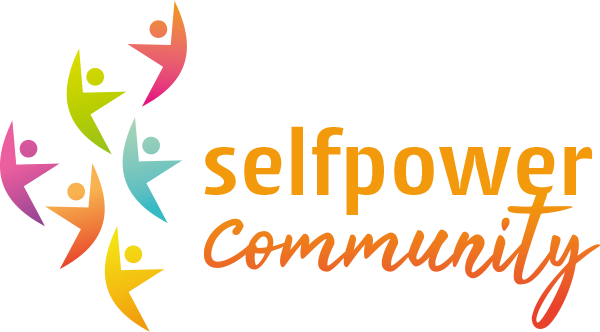
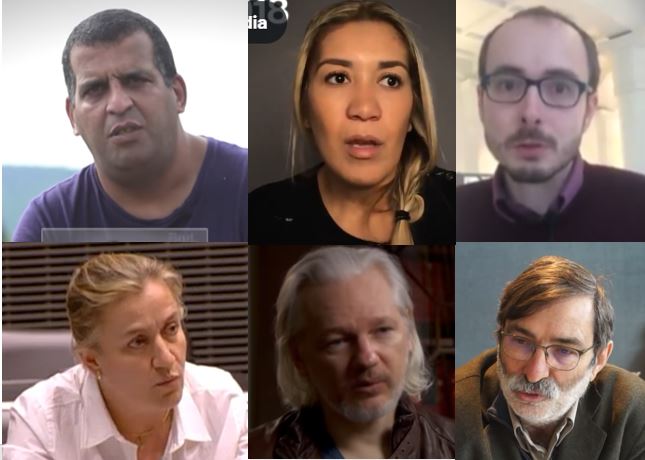



En postant un commentaire sur www.selfpower-community, vous acceptez les règles de l’espace réaction et reconnaissez à www.selfpower-community la capacité de ne pas publier certaines contributions sans avoir à motiver cette décision.
prendre connaissance des règles